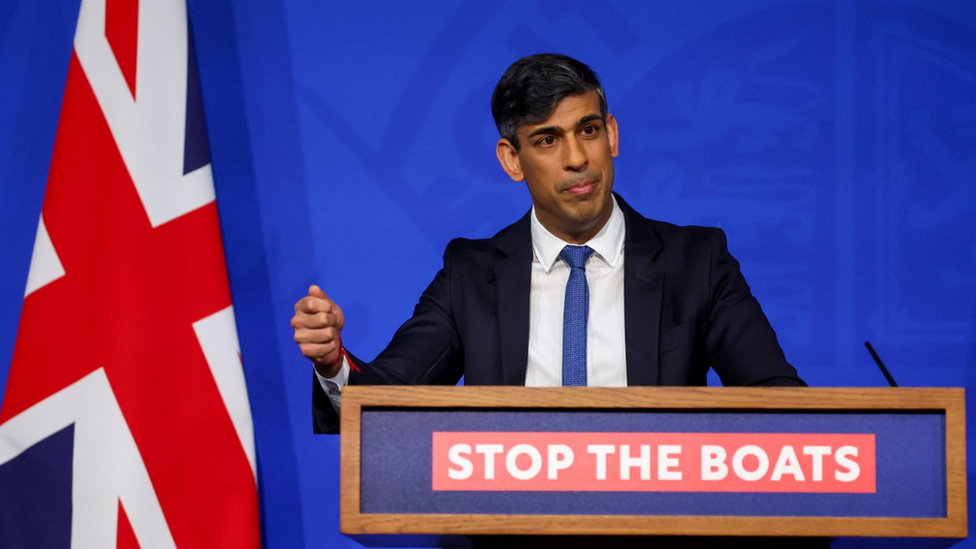Rwanda asylum debate: How the country views the UK deal
- Published
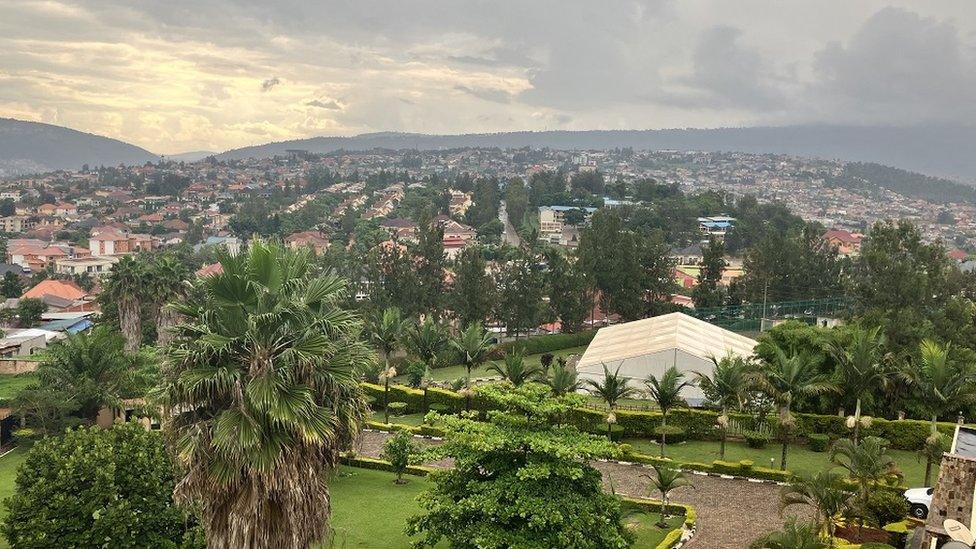
Kigali can bee seen from the upper floors of the empty hostel that will put up people sent from the UK
This week, Rwanda has been at the centre of a debate in UK politics about whether the government's latest attempt to offshore some of its asylum seekers to the East African nation will work. But what do people in Rwanda make of the scheme?

The atmosphere in Hope Hostel is eerie.
Its 50 double rooms are cleaned daily, toiletries and slippers wait for new arrivals that are yet to come. Located in the affluent Kagugu suburb of Rwanda's capital, Kigali, you can see the presidential palace from some of the rooms' balconies.
It used to be a refuge for survivors of the 1994 genocide, in which about 800,000 people were slaughtered by ethnic Hutu extremists targeting the Tutsi minority.
Last year, it was then repurposed to host the asylum seekers who were going to be relocated from Britain.
It has 50 double rooms and can host up to 100 guests.
Qurans and prayer mats have been set up in each room.
Ismail Bakina, the hostel's managing director, says they were told many of the new arrivals would be Muslims from the Middle East and they wanted to accommodate their faith.
All the signs around the hostel are in English and Arabic.
And the restaurant has a big halal placard above the kitchen. Two prayer rooms on the top floors have breath-taking views of Kigali's rolling green hills.
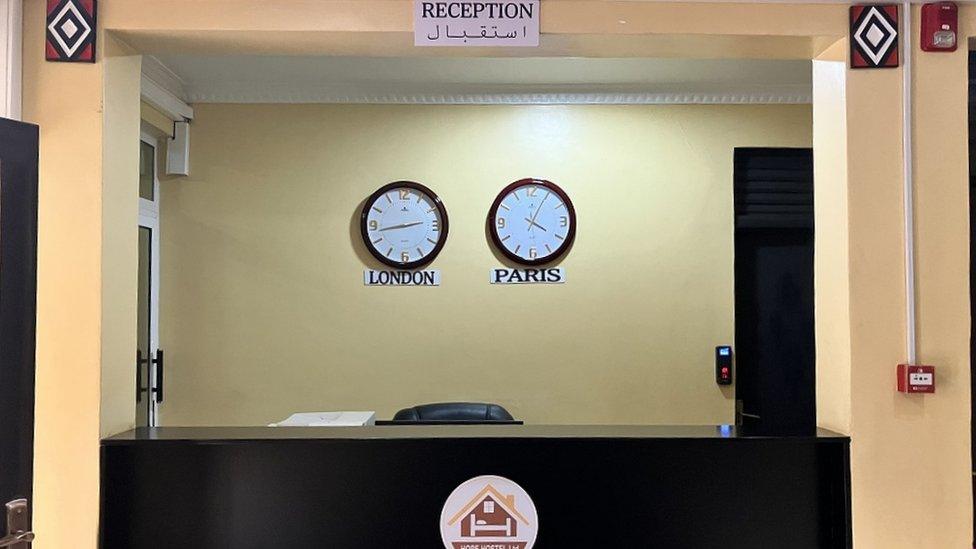
Hope Hostel reception is still waiting to welcome its first guest
A BBC crew visited the hostel a year ago as it was getting ready to receive the first arrivals from the UK. Now, a year-and-a-half later, it still stands empty.
It is part of what we now know is a £240m ($300m) payment the UK made as part of its deal with Rwanda to settle some of its asylum seekers here.
The refugees would be given the option to stay in Rwanda or re-settle to another country.
Twenty-five-year-old journalist Providence Uwase is happy about the arrangement and thinks the deal could be good for Rwanda.
"Money is being injected into the country. Remember the UK has already provided the first instalment, which in return will support economic growth here," she tells the BBC.
"And the fact that Rwanda takes these asylum seekers in, might change the negative depiction of this country."
But not everyone agrees.
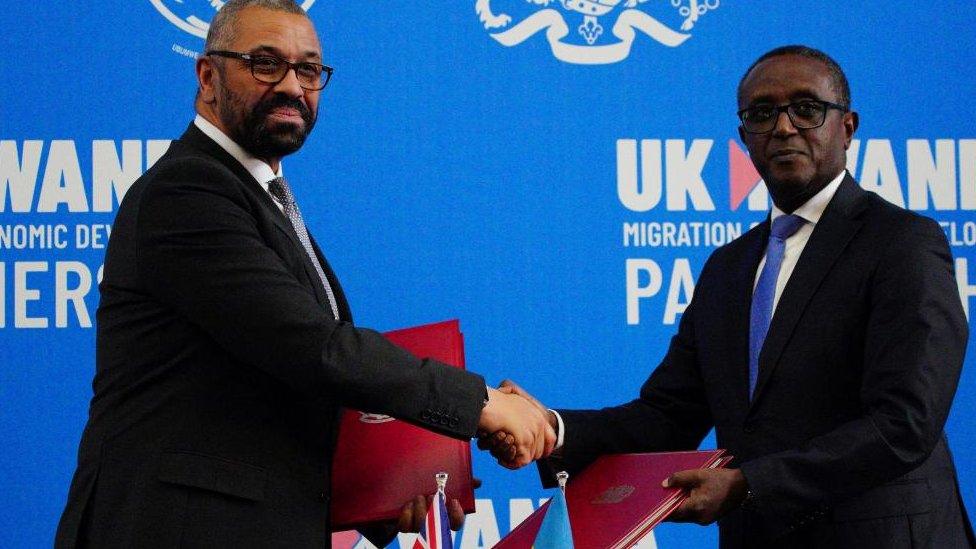
UK Home Secretary James Cleverly and Rwandan Foreign Minister Vincent Biruta say their two countries are in a partnership
Many of the people we speak to will not criticise the government on the record. They worry there might be repercussions in a country which rights groups have criticised for not allowing free expression.
A 42-year-old Kigali café owner, who spoke to the BBC on the condition of anonymity, is torn about whether the scheme will benefit the country.
"I think it's double-sided.
"On a positive note, by bringing these people here, in the long term… we'll become more multicultural.
"But the downside is that this is a tiny, densely populated country with minimal or no access to basic opportunities. What happens if foreigners come in to compete for the same opportunities?"
It is also not clear whether the new legislation, if passed in Westminster, will get stuck in a court battle.
Last month the UK Supreme Court judged a previous version of the scheme unlawful on the basis that it could not be sure Rwanda was a safe third country to send vulnerable asylum seekers to.
Opposition politician Victoire Ingabire agrees.
"I was surprised that the British government wanted to push this deal forward. They've signed a new treaty, but Rwanda's human rights record was one of the problems highlighted by the Supreme Court. If human rights issues are not addressed I think this treaty will face another legal challenge," she says.
The Rwandan government says it has always been important to both Rwanda and the UK that their partnership meet the highest standards of international law.
It also objects to being called unsafe, adding that the funding by the British government will ensure the asylum seekers it sends to Kigali are well taken care of.
In a press conference with British Home Secretary James Cleverly on Tuesday in Kigali, Rwandan Foreign Minister Vincent Biruta said his country had a long history of welcoming refugees from around the world, including African migrants who were stuck in Libya and are now having their asylum cases processed in Rwanda.
He was referring to the Gashora transit camp, which we visit on a hot Thursday afternoon.
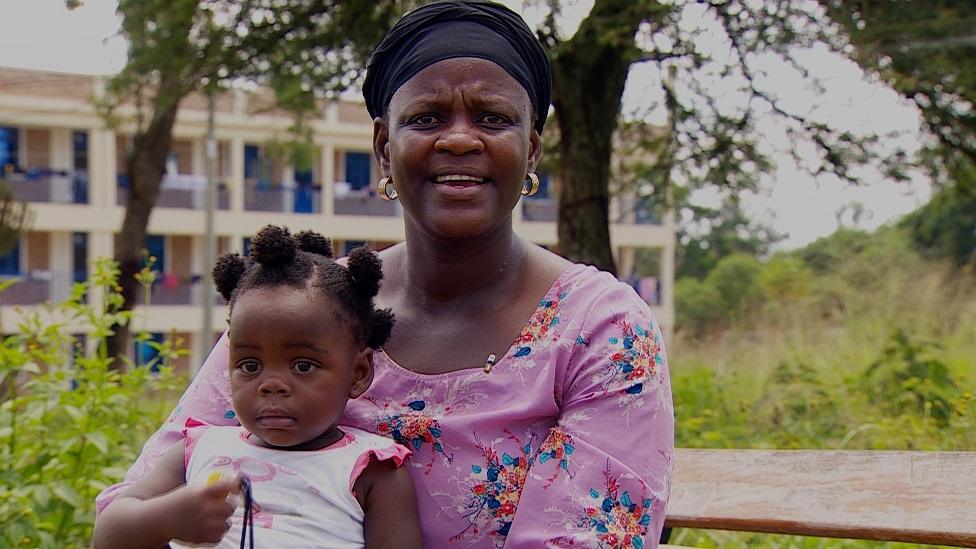
Cameroonian Berenice Nonga says Rwanda is a good home for refugees but wants to be re-located to the US
Forty-two-year-old Berenice Nonga is one of the residents.
She is happy here, but applied for asylum in the US. Her application has been successful and she hopes to move soon.
"Rwanda is really good, it's home for all the refugees, the people are welcoming, they take good care of us. But since I never intended to spend all my life in Rwanda, that's why I asked to be resettled somewhere else so that I can give my child a good life."
She is not the only one. Of the almost 2,000 people who have been relocated to the transit camp in Gashora since it was set up in 2019, none opted to stay in Rwanda when given the option, preferring instead to move to another country.
Back in Kigali, 26-year-old South Sudanese refugee John (not his real name) also says he does not want to stay in Rwanda.
"I have no reason to stay in Rwanda. I don't see my life staying in Rwanda. All I do here is a struggle, I'm trying to build up a life out of a struggle."
John moved to Rwanda in 2017.
"I'm grateful to the government of Rwanda for giving me refugee status, but when I think about my growth, I don't feel proud to be in Rwanda."
He says although some refugees like the dozens of female students Rwanda took in from Afghanistan live in good hostels and are well taken care of, others like him are left to rot in camps for years. He does not think the UK should send its asylum seekers to Rwanda.
"Suella Braverman [who was home secretary at the time] came here to look into the living conditions of refugees. But she didn't meet the people who would have told her the truth about what it's like to be a refugee here before deciding to send asylum seekers here.
"It wasn't the real investigation of how to bring refugees in Rwanda. I don't agree with bringing refugees to Rwanda."
Related topics
- Published14 April 2022
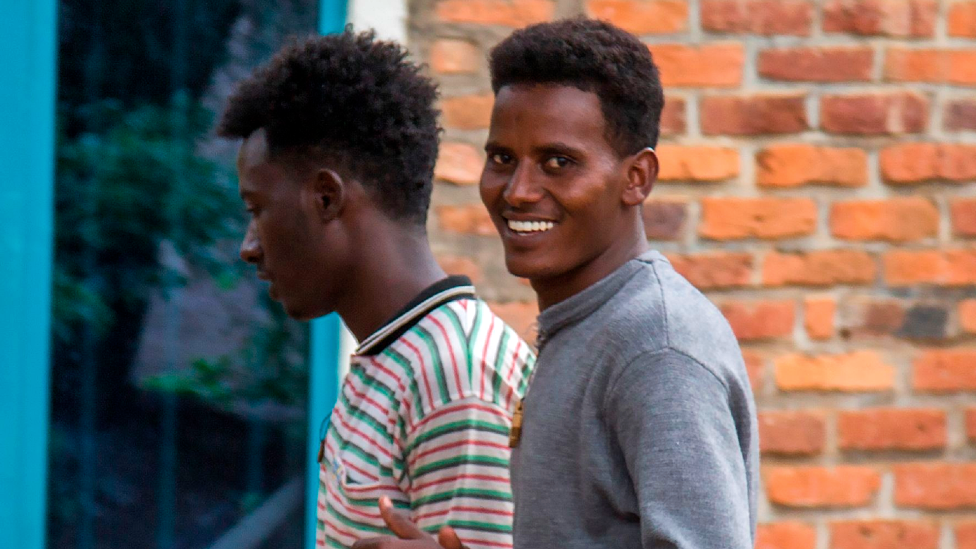
- Published9 December 2023
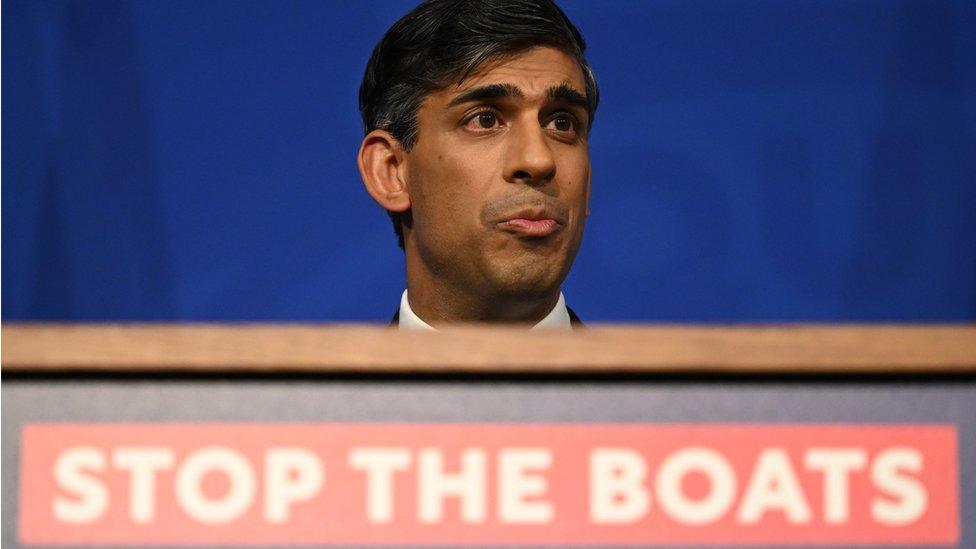
- Published8 December 2023
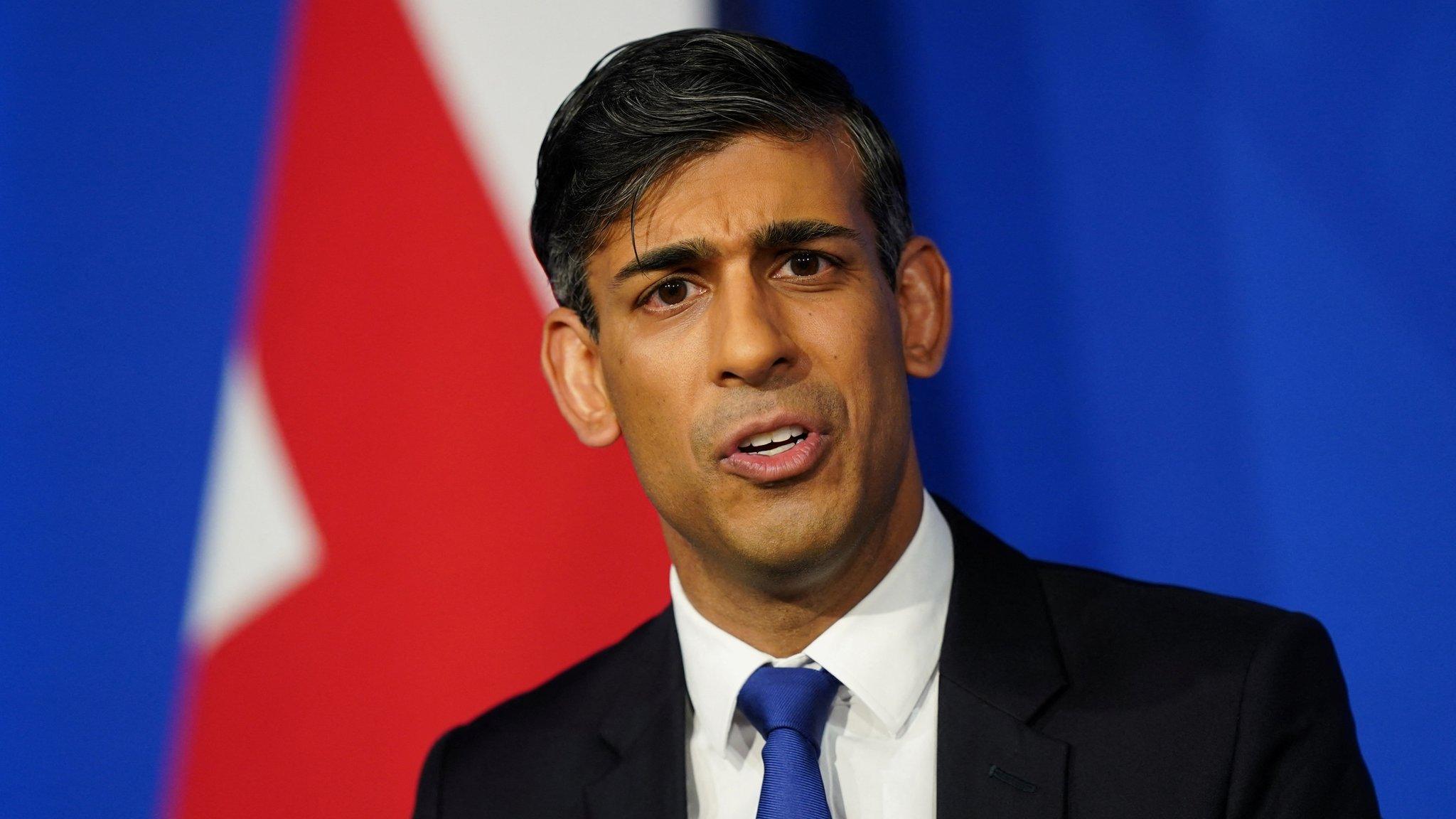
- Published17 January 2024
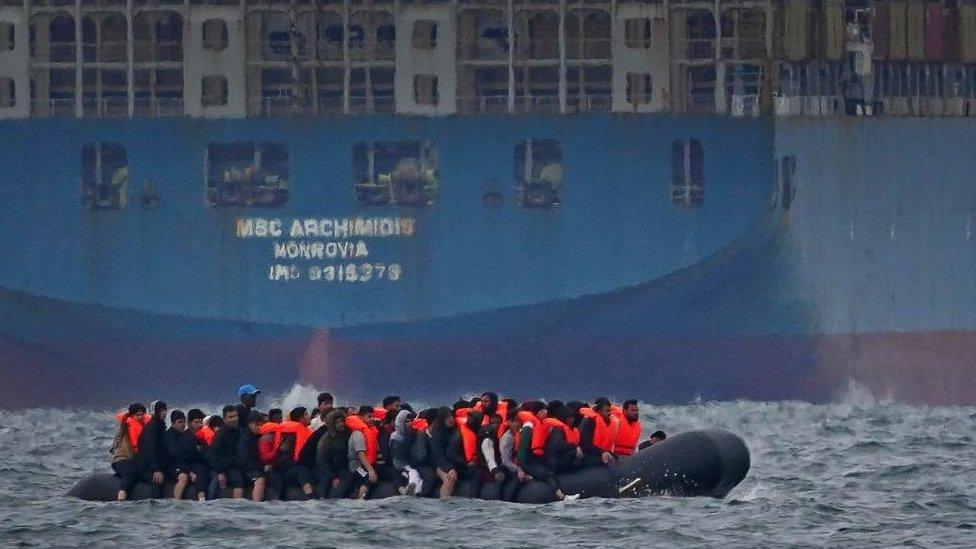
- Published13 June 2024
